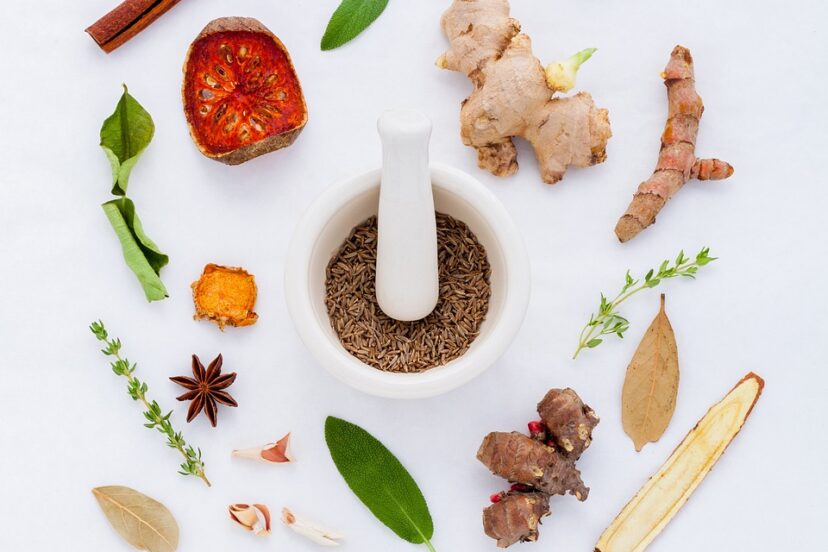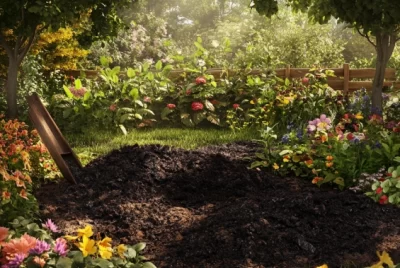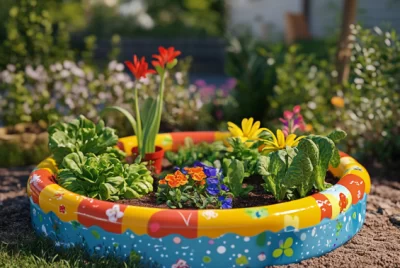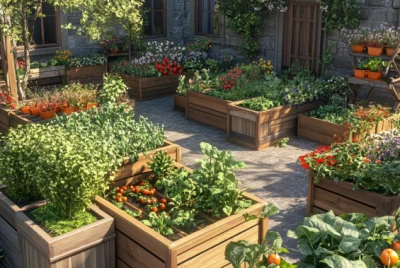Herb Gardening Ideas
In this post, I will be providing some herb gardening ideas that I have found useful throughout the years. I am always open to hearing new ideas and hopefully you are too.
As you probably know by now I enjoy gardening very much. There’s something almost magical about nurturing a plant and then using its leaves, flowers, or roots to enhance a meal or treat a wound. I’ve found a special kind of fulfillment in herb gardening that combines utility with beauty, and the joy it brings is manifold.
Getting Started with Herb Gardening
When starting an herb garden, your first step is choosing the right location. Most herbs thrive in well-drained soil with plenty of sunlight—think “Mediterranean” conditions. The next exciting phase is selecting your herbs. Consider what you love to cook with or what smells you find most uplifting. Will it be the sweet aroma of basil, the pungent kick of garlic chives, or the calming scent of lavender?
The Design of Your Herb Garden
Traditional garden beds are fantastic for large-scale herb farming, but don’t fret if you’re working with a cozy balcony; container gardening has you covered. And for those who want to truly maximize space, vertical gardening is not just efficient; it’s also a canvas for your creativity.
Soil and Sunlight: The Foundations of a Healthy Herb Garden
Understanding soil types is crucial; herbs like well-aerated and nutrient-rich environments. Sunlight, at least six hours a day, is the other half of this growth-promoting duo. Your plants will reach for the sky with the right blend of earth and light.
Planting Your Herbs
Seeds or seedlings? Starting from seeds is economical and satisfying, while seedlings give you a head start. Whichever you choose, the planting process is a serene ritual that connects you to nature.
Caring for Your Herb Garden
No article on herb gardening ideas would be complete without talking about watering. Watering wisely is key—herbs generally prefer a “less is more” approach. Fertilizing supports growth but must be done judiciously. And when it comes to pruning and harvesting, regular clipping not only encourages growth but also provides you with fresh herbs for your kitchen.
Overcoming Challenges in Herb Gardening
Pests can be pesky, diseases disheartening, and weather worrisome. But with a little knowledge and the right approach, you can mitigate these issues. Encouraging beneficial insects, using organic fungicides, and understanding the needs of your herbs during different weather conditions are all part of the learning curve.
The Benefits of an Herb Garden
Culinary uses are the most obvious payoff—fresh herbs elevate any dish. Medicinal benefits are also significant, with many herbs boasting healing properties. Beyond this, the aesthetic and environmental advantages of herb gardens are plentiful, from their pollinator-friendly flowers to their ability to cleanse the air.
Innovative Herb Gardening Ideas
Companion planting can lead to symbiotic relationships between your herbs and other plants. Themed herb gardens, like a pizza garden with basil, oregano, and thyme, offer a fun twist. Incorporating herbs into your overall landscape design can also be both practical and beautiful.
Herb Gardening Ideas for Seasoned Gardeners
For those with a bit more experience, propagating herbs can be a rewarding challenge. Learning how to winterize your garden will protect it from the cold. And don’t forget the joy of perennials, which return year after year with minimal effort on your part.
Engaging the Community
Sharing your harvest is one of the most rewarding aspects of herb gardening. You might also consider leading workshops, where you can spread the joy and knowledge of herb gardening within your community.
Conclusion: Reflections on the Rewards of Herb Gardening
As I sit back and survey my garden, it’s clear that the rewards of herb gardening are as rich and varied as the herbs themselves. It’s a journey of growth, challenges, and joy. And it’s one I recommend wholeheartedly.
FAQs
What are the easiest herbs to grow for a beginner?
For those just starting out, I’d suggest beginning with herbs that are known for their hardiness and low maintenance. Mint is nearly indestructible and grows prolifically, making it a good choice. Chives, parsley, and basil are also quite forgiving and can thrive with basic care. Just remember, while mint is easy, it’s also invasive, so keep it contained unless you want a minty takeover!
How do I deal with herbs that outgrow their space?
It’s a common occurrence for enthusiastic herbs to spread their roots a bit too far. The key is regular pruning, which keeps them in check and encourages new growth. If an herb like mint has really taken over, don’t be afraid to dig it up and replant a small portion elsewhere, or share with friends. For container gardening, repotting into a larger container or dividing the herb can help manage growth.
Can you give tips on drying and storing herbs?
Drying herbs is a wonderful way to preserve your harvest. The simplest method is air drying: tie the herbs in small bunches and hang them upside down in a warm, dry, well-ventilated space out of direct sunlight. Once they’re dry, crumble the leaves and store them in airtight containers. Another quick method is using a microwave. Place the herbs between two paper towels and microwave them in short bursts until dry. Always label your containers with the herb name and the date.
How can I use herbs for their medicinal properties safely?
Herbs have been used medicinally for centuries, but it’s important to use them wisely. Start by researching the herb you’re interested in and consult with a healthcare professional before using any herb for medicinal purposes, especially if you have existing health conditions or take medications. Use herbs as supplements, not replacements for prescribed medication. Consider starting with herbs that have gentle effects, like chamomile for relaxation or peppermint for digestion.
Are there any community resources for novice herb gardeners?
Many communities have local gardening clubs or societies that offer resources for beginners. You can also check with your local nursery or extension service, which often provides workshops and planting guides. Online, there are numerous forums and social media groups where you can connect with other gardeners. Don’t forget about your local library, which can be a treasure trove of gardening books and often hosts free gardening classes.
“”




